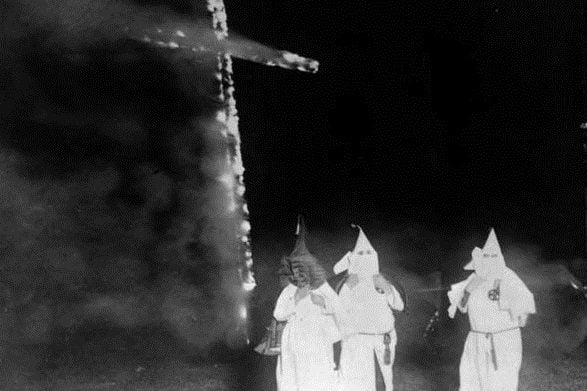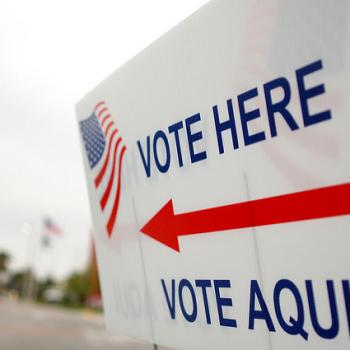
Editorial Note: Ali Asadullah, a long-time journalist and writer, is a new columnist for Altmuslim. His columns will be appearing the third week of every month, insha’Allah. His first column is part one of a two-part series looking at the roots of Muslim extremism, KKK comparisons and what brought us to our current crisis.
By Ali Asadullah
On January 9, 2015, just two days after the horrific Charlie Hebdo attacks in Paris, NBA hall-of-famer and noted American Muslim writer, Kareem Abdul Jabbar, wrote a piece for Time in which he attempted to distance the masses of peaceful practitioners of various faiths from violence perpetrated in the name of religion.
More recently, the Saudi Arabian Foreign Minister, Adel Al-Jubeir, sat for an interview with Der Spiegel, which was published on February 9, 2016, a little more than a month prior to the terror attacks in Brussels. Like Jabbar, Al-Jubeir also drew attention to the criminality of such attacks and again tried to isolate these acts of extremism from religion.
In their analyses, both Jabbar and Al-Jubeir used the Ku Klax Klan (KKK) as an example of criminality masquerading as Christianity, implying that Muslims engaged in gross acts of violence against innocent individuals were likewise inappropriately using the cloak of religiosity to justify murder and mayhem.
Wrote Jabbar, “Violence committed in the name of religion is never about religion … Most people already realize that the KKK doesn’t represent Christian teachings.”
Speaking on the KKK, Al-Jubeir had this to say: “ISIS is as much an Islamic organization as the KKK in America is a Christian organization … Unfortunately, in every religion there are people who pervert the faith. We should not take the actions of psychopaths and paint them as being representative of the whole religion.”
As much as I’d like to accept these comparative narratives of the KKK and Muslim extremists, I can’t. That is because they are indeed alike, just not for the reasons that Jabbar, Al-Jubeir and probably most Muslims think. And contrary to Jabbar’s and Al-Jubeir’s assertions that such extremism isn’t truly related to religion, I posit that better analysis of both the KKK and Muslim extremists tells a different story.
The Christian-Supported, Strong KKK of Yesteryear
My main point of contention is that Jabbar and Al-Jubeir both make no distinction between the KKK of today and the KKK of yesteryear. I believe that a more apt comparison to violence in the name of Islam can be found by rewinding the clock to an era when the KKK was at its apex of organizational strength and power; when it not only could spread rhetoric, but also implement a well-organized reign of terror that included countless lynchings and other murders of African-Americans, other minorities and even Whites, especially in the southern region of the United States.
While it is true that the KKK of today maintains its racist, vitriolic tenor as an organization, it is also true that it lacks any mass appeal, broader societal support and that its ideology surely has been discredited amongst most Americans. The numbers bear this out. The Southern Poverty Law Center estimates that there are, at most, 8000 Klan members active in the U.S. today. Compare that to the estimated four million members it had in 1920 when it was arguably at its peak.
That KKK of 1920 had fangs, claws and chorus of supporters who either directly spoke on its behalf, found favor with it, tolerated its existence in their communities and/or, most importantly, shared many of its fundamental religious views. In fact, I argue that the KKK would not have been possible without a religious milieu in the southern United States that included an acceptance of African Americans as inferior. And, that religious basis was established during America’s shameful experience with chattel slavery.
In his book, The Civil War as a Theological Crisis, author Mark A. Noll deals with the particular problem of Christianity being used to support slavery and the oppression of African Americans. Writes Noll:
On the eve of the Civil War, interpretations of the Bible that made the most sense to the broadest public were those that incorporated the defining experiences of America into the hermeneutics used for interpreting what the infallible text actually meant. In this effort, those, who like James Henley Thornwell, defended the legitimacy of slavery in the Bible, had the easiest task. The procedure, which by 1860 had been repeated countless times, was uncomplicated. First, open the Scriptures and read, at say, Leviticus 25:45 or, even better, at 1 Corinthians 7:20-21. Second, decide for yourself what these passages mean. Don’t wait for a bishop or a king or a president or a meddling Yankee to tell you what the passage means, but decide for yourself. Third, if anyone tries to convince you that you are not interpreting such passages in the natural, commonsensical, ordinary meaning of the words, look hard at what such a one believes with respect to other biblical doctrines. If you find in what he or she says about such doctrines the least hint of unorthodoxy, as inevitably you will, then you may rest assured that you are being asked to give up not only the plain meaning of Scripture, but also the entire trust in the Bible that made the country into such a great Christian civilization.
Indeed, in the antebellum American South, and even in the North, the perceived inferiority of African Americans and the desire to maintain the social stratification derived from racist ideology, in no way caused even the slightest cognitive dissonance amongst most Christians, save for the few who came to be swayed by the growing Abolitionist movement. This lack of Christian empathy for African Americans allowed the KKK to rise during Reconstruction and to flourish through the middle of the 20th century.
We must remember, most importantly, that America from 1865 through the mid 20th century was a far more Christian nation than it is today. And, as Noll points out in his book, there was indeed a theological block, especially in the South, that used Christianity as perhaps the ultimate justification for the oppression of African Americans. Using this foundation, the Ku Klux Klan rose to prominence and acceptance in the South.
What KKK of the Past and Muslim Extremists of Today Share
Now let us shift our focus to violent extremism in the name of Islam in the modern era. All of the foregoing quotes and analysis related to the Ku Klux Klan draw a striking comparison to today’s extremism. It is my assertion that despite the infallibility, beauty and integrity of the religion, as Allah has revealed it, Islam nonetheless becomes what people make of it given the unique circumstances of time and place.
I mean, who can argue that the Crusades or the Inquisition were not Christian when they enjoyed support from the religious establishment of the time and appealed to masses of Christians as well? The same could be said of the the KKK in the American South and of Muslim extremists today.
Indeed, whenever you have a critical mass of individuals believing in and following a particular religious orientation, you cannot separate those individuals from the broader religious community when they have derived their positions from within the religion. And, if that ideologically contiguous, critical mass of Muslims presents this orientation as the orthodox truth, then it is problematic to simply dismiss it out of hand.
Yes, we know that there are peaceful Muslims the world over. Yes, we know that Allah is perfect and so is his revelation. But have we forgotten the nearly three decades of narrow literalism that became a prominent feature of Islam in America and other parts of the world? I surely remember it.
I recall when audiocassettes of Ali Tamimi (now serving a life sentence for recruiting and inciting other toward violence against the U.S.) were readily available for sale in mosques. I remember when pretty much any armed struggle in the Muslim world was viewed as a valid armed struggle. I recall Yasir Qadhi before he stepped away from the so-called Salafi movement.
I have personally listened to the once popular audio series by Waleed Basyouni on sects in Islam, which, in the hands of the less knowledgeable individual, would lead one to perhaps believe that many Muslims are leading unambiguously heterodoxical Islamic lives and that other Muslims are perhaps not even part of the faith at all. Even during my own tenure as editor of iViews.com, I wrote about the Taliban in a manner that likely cast them in an inappropriately favorable light.
Surely much has transpired since the 1990s; and in the cases of Qadhi and Basyouni, they have matured beyond much of their earlier work, as have I. But the religious milieu that produced that work isn’t just some distant memory. I would argue that from the 1980s through to September 11, 2001, that milieu — call it Salafist, call it literalist, call it narrow or whatever — formed a foundation for extremism just as the the Christian dehumanization of African Americans formed a foundation for the KKK.
The KKK was surely a product of a confluence of factors; but the Christian religious orientation in the South was integral to the organization’s rise. Likewise, Muslim extremism is a complex phenomenon; but there was and is a Muslim orientation, rooted in the faith itself, that has allowed Muslim extremists to rise as well.
In part two of this series, I will explore, more specifically, the roadmap that Muslims have taken to reach the current crisis of extremism. I will delve into some of the passive acceptance of certain religious status quos that went unquestioned and allowed for certain segments of Muslim communities to take narrow interpretations of faith to an extreme end.
For I believe that the same type of theological crisis explored by Noll in his book is now visiting itself upon Muslims and will help determine the path of Muslim religious orientation in the 21st century.
Ali Asadullah was formerly the founding editor of iViews.com, one of the first American Muslim news and views publications on the internet. He writes on a range of topics related to Islam, Muslims, current affairs, and culture.
Stay in touch! Like Altmuslim on Facebook:













